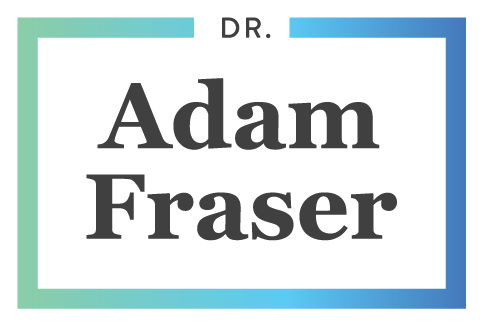The Dark Side of Resilience
The Dark Side of Resilience
For the last 8 years, we at the e-lab and our research partner from Deakin University, Dr John Molineux, have been studying transformation in organisations. Put simply, how do businesses evolve to stay relevant and commercially successful.
When I say studying I don't mean sending out a simple survey. I mean tracking various psychological constructs, using diary studies to document participants daily experience, and in-depth one on one interviews.
Over this time we have tens of thousands of data points, so many spread sheets I now wear glasses, countless stories and enough tears to revegetate the Sahara (some from us as well as the participants). We have literally immersed ourselves in people’s worlds.
Over the next 12 months we will be releasing our findings. However, one fascinating discovery has uncovered a misconception or distortion too many of us have bought into, that we lack resilience.
The belief that people lack resilience has become an excuse to lay blame on the human capital in organisations rather than address the real issues. Such as outdated systems, reactive cultures that are obsessed with busyness rather than aligning activity to strategy, unrealistic workloads and a lack of clarity around what is important.
Rather than address these issues it’s far easier to blame the people and tell them to harden up.
We often hear, “Our employees need to be more resilient”, “They will just have to have more resilience when it comes to the pace of change”.
It’s a crock! Our research shows that people today are too resilient. Far too resilient.
Resilience is defined as:
‘the capacity to recover quickly from difficulties, or the capacity to take a knock and get back up.’
In today’s business landscape the average worker is taking more knocks than a professional boxer, yet like Oliver Twist they front up everyday asking ‘can I have some more?’.
We recently did a project with a department in a financial institution who repossess people’s belongings. What a job! They spend their day dealing with people who are in financial distress. To make it even more challenging, their customers are not simply reckless, irresponsible people who have stretched themselves too far. The customers are often women who are victims of violence, or parents with a sick child or someone that had a failed business. These employees are having incredibly hard conversations every day and fronting up the next day to do it again and again and again. Talk about resilience, these people have it in spades.
One group that is currently blowing our mind is school principals and their leadership teams, these people are super human. They should literally wear capes to work. It is one of the hardest and most challenging jobs we have ever studied. If you have kids at school, next time you walk past their office go in and hug them (for an appropriate amount of time) and say 'thanks for taking on this very hard job’.
Our studies show that resilience is a huge issue for them but in reverse. They are so resilient they have a warped view of what stress is. They are so hardened that events which would normally crush the average person are seen by them as just business as usual. We have had tremendous success with improving the wellbeing of this group and much of it stems from a change in their mindset that it’s ok to take time for themselves and to make recovery a regular habit (we actually use a specific formula of recovery which stems from my work at the AIS looking at the prevention of burnout in athletes - the exact formula is the topic for another day).
So what is the fall out of too much resilience? Burnout and a lack of self care. A conclusive finding of our research was that the expectation of resilience leads to a mindset of “I should be able to handle all this pressure without needing a break”, “If I am struggling I just have to lean in and push harder.”
People today are not lacking resilience, they are lacking the permission to take care of themselves, the ability to recover and refresh and the capacity to get past guilt so that they can embed rituals that allow them to do things that fill up their tanks. Being a true high performer in todays business landscape is knowing when to rest and when to push.
While resilience is a critical skill, we have overplayed it and it has become a tool to make us feel weak and ensure that burn out and exhaustion is our bedfellow.
I encourage you to not go to the dark side of resilience. Ask yourself do I need more resilience or do I need recovery and self compassion?
Dr Adam Fraser

